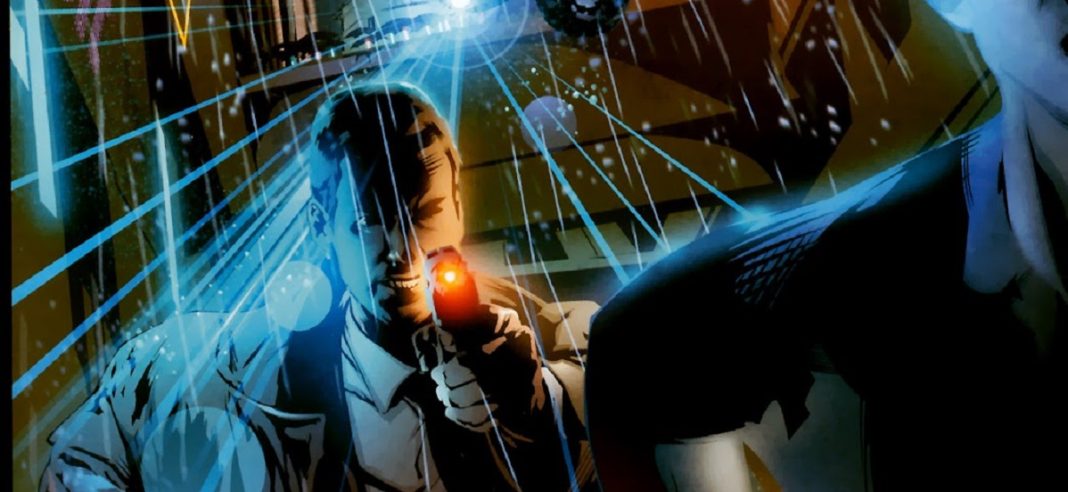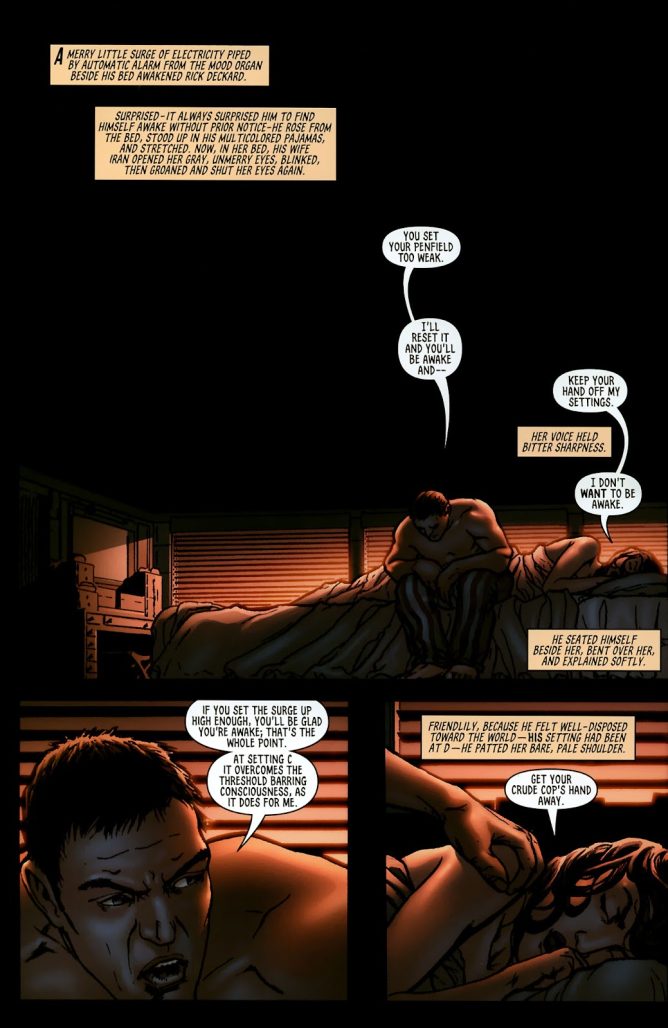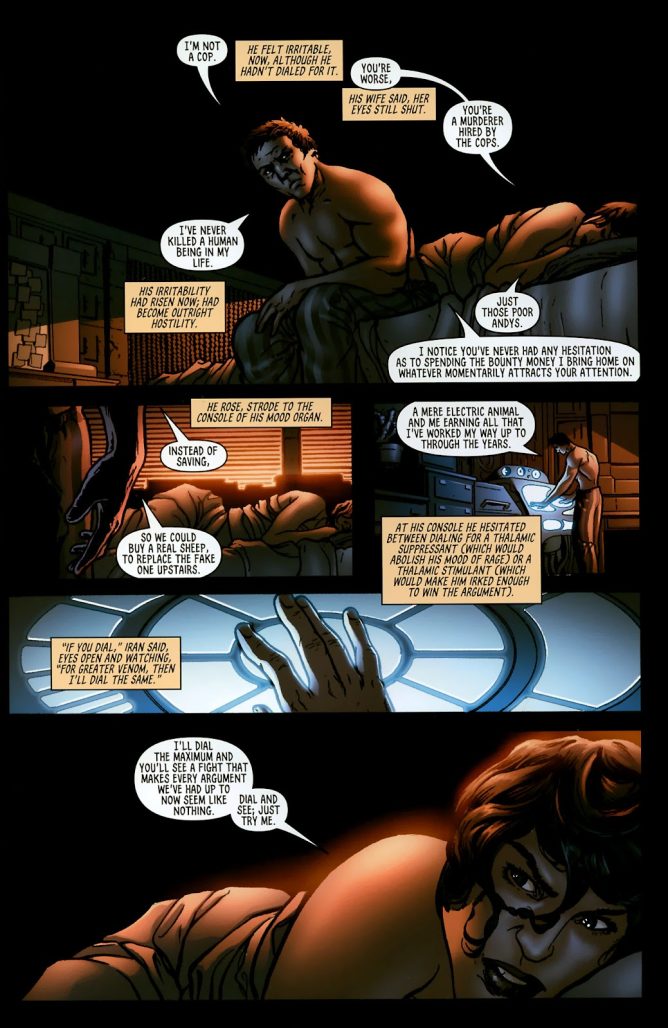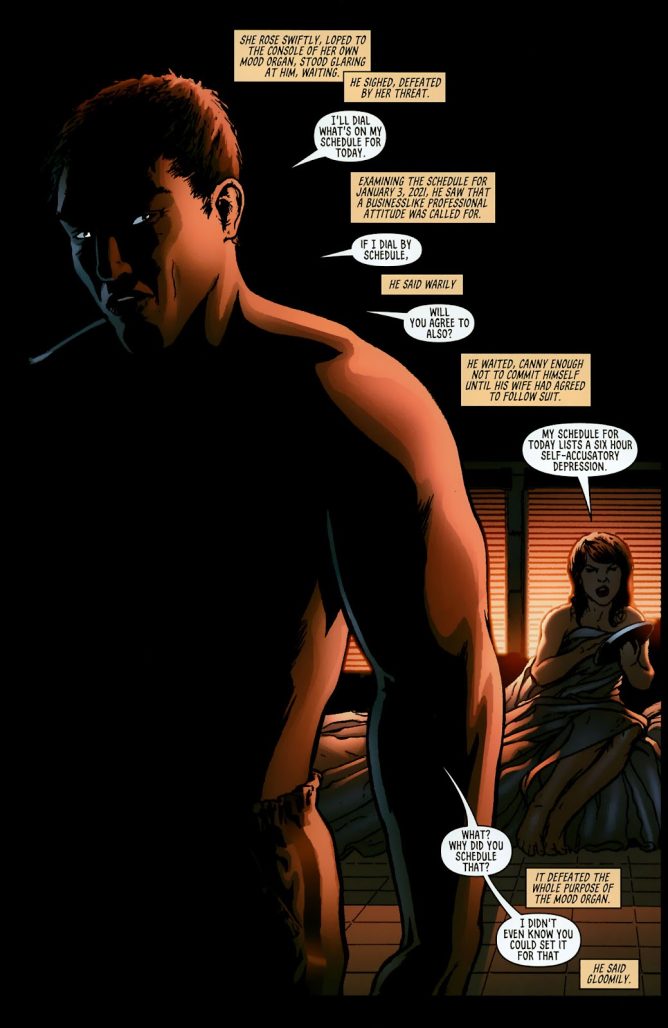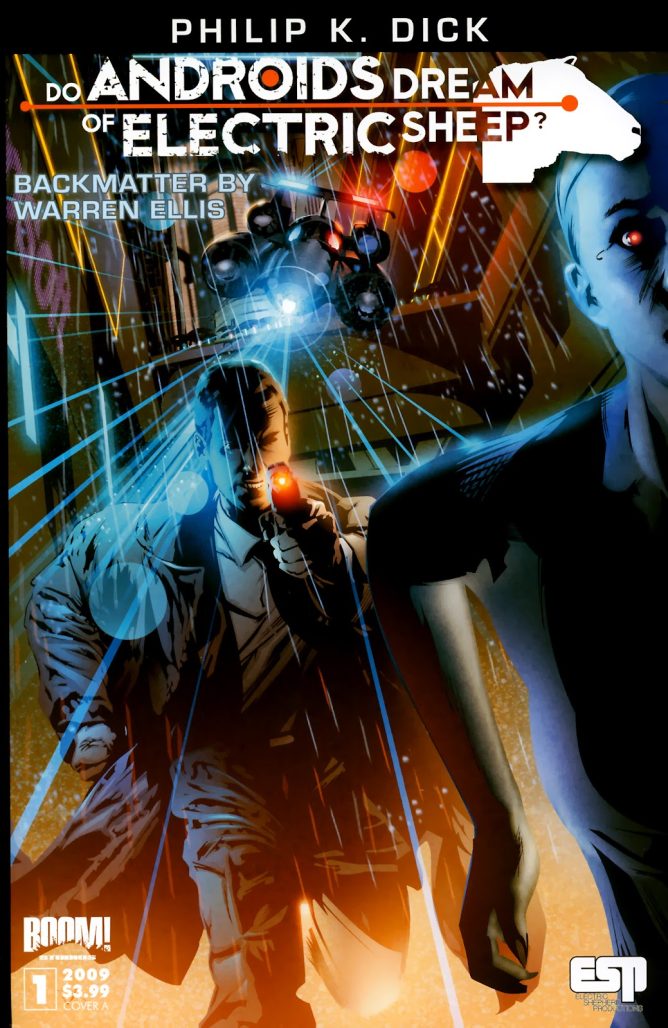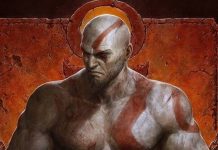“Do you think androids have souls?”
Are you real?
Are you sure?
Even if you were sure, in yourself, how would you go about proving it? The concept of object permanence gives us the belief of consistency of matter, allowing us to know that individuals and things are the same from location to location, instance to instance, but what if it was an elaborate ruse? What if you don’t know your world or yourself? What if you were only programmed to think that you were real? This fertile ground of philosophy and science plants the seeds for exploration in many areas of science fiction, including the work that inspired Blade Runner, the hard-boiled cyberpunk thriller of Philip K. Dick‘s Do Androids Dream of Electric Sheep? as adapted by Tony Parker, Blond, and Richard Starkings.
Do Androids Dream of Electric Sheep? has the core story of Rick Deckard hunting down escaped robots, but it’s fleshed out with mood altering technology, a depressed wife, an obsession with owning real animals, a vet tech affected by radiation, and a complex religion centered around empathy. If you’re at all familiar with any version of Ridley Scott’s Blade Runner, you’re put in a weird sort of position when comparing to Do Androids Dream of Electric Sheep? There are many characters of the same name, doing similar things, in a similar setting, but not quite the same. Even with lines replicated from the novel to the screen, the two are very different things. It puts you in the same kind of headspace as some of the characters, with androids not knowing that they’re robots and Deckard being dropped into a situation where he can’t tell if his life is real or if he’s being gaslit by robots organizing their own parallel law enforcement.
The choice for how to adapt this to comics is an interesting one. While many adaptations condense and paraphrase textual sources, Tony Parker here takes Philip K. Dick’s narration and dialogue pretty much whole cloth from the novel. It results in a lot of text on the page, complete with dialogue tags, giving Richard Starkings a lot to work with to make sure the pages are still legible for the art. It leads to a dense read, but one that completely replicates the hard-boiled, somewhat off-kilter feel of Dick’s style.
That density of text, though, means that sometimes Parker doesn’t leave himself a lot of room for his art. And the occasional bit where the text says one thing and the art says another, most particularly when it comes to depicting historical forms of communication (like a phone receiver), but those times are minimal. Parker’s artwork is suitable shadowed and bathed in layers of darkness, fitting the grimy decay of Dick’s world. There are times that his characters remind of Alan Davis or Bryan Hitch with a bit of Garry Leach, a roundness to them, that hints at some of the cleaner, brighter elements of cyberpunk. Blond’s colors also perfectly exemplify this, casting most of the world in darkness, but a neon glow coming through some of the technology.
Through the characters’ clothing to the disrepair of the buildings, it’s interesting to see the influences of elements inspired by Blade Runner back on the original source. Like seeing Phil Resch’s gear that feels like The Filth filtered back to William S. Burroughs’ Nova Police reflecting back on Dick’s bounty hunters. It helps extend that feeling that everything is familiar, but not quite what you remember. Like maybe you’re looking through implanted memories.
Do Androids Dream of Electric Sheep? by Dick, Parker, Blond, and Starkings is a wonderful adaptation of a sci-fi classic. It gives a unique way to experience one of the quintessential building blocks of modern sci-fi, exploring notions of identity and empathy as if through a glass darkly. It’s a tale of a bounty hunter finding rogue robots, but funneled through layers of fuzzy reality and decades of interpretation. Bringing you back to the question; are you real?
Do Androids Dream of Electric Sheep?
Writer: Philip K. Dick
Adaptation & Artist: Tony Parker
Colourist: Blond
Letterer: Richard Starkings of Comicraft
Publisher: BOOM! Studios
Release Date: November 25, 2015
Androids are on the loose on the streets of San Francisco. The world reels from World War Terminus. The animals have died off, and a new religion, Mercerism, holds society in its grasp. Visionary and prophetic author Philip K. Dick’s Do Androids Dream of Electric Sheep? is brought to comics in a unique, full-text “graphic novelization” that combines Dick’s text with Tony Parker’s artwork.
Read last week’s addition to the Classic Comic Compendium!


